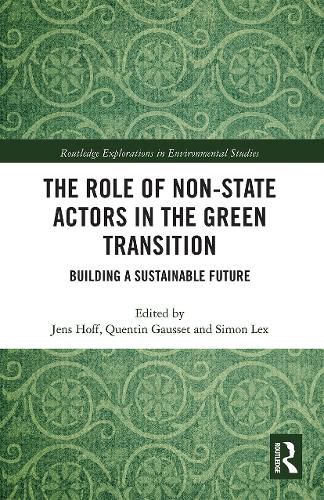Readings Newsletter
Become a Readings Member to make your shopping experience even easier.
Sign in or sign up for free!
You’re not far away from qualifying for FREE standard shipping within Australia
You’ve qualified for FREE standard shipping within Australia
The cart is loading…






This book argues that there is no way to make progress in building a sustainable future without extensive participation of non-state actors.
The volume explores the contribution of non-state actors to a sustainable transition, starting with citizens and communities of different kinds and ending with cities and city-networks. The authors analyse social, cultural, political and economic drivers and barriers for this transition, from individual behaviour to structural restraints, and investigate interplay between the two. Through a series of wide-ranging case studies from the UK, Australia, Germany, Italy and Denmark, and a number of comparative case studies, the volume provides an empirically and theoretically robust argument that highlights the need to develop, widen and scale up collective action and community-based engagement if the transition to sustainability is to be successful.
This book will be of great interest to students and scholars of climate change, sustainability and environmental policy.
$9.00 standard shipping within Australia
FREE standard shipping within Australia for orders over $100.00
Express & International shipping calculated at checkout
This book argues that there is no way to make progress in building a sustainable future without extensive participation of non-state actors.
The volume explores the contribution of non-state actors to a sustainable transition, starting with citizens and communities of different kinds and ending with cities and city-networks. The authors analyse social, cultural, political and economic drivers and barriers for this transition, from individual behaviour to structural restraints, and investigate interplay between the two. Through a series of wide-ranging case studies from the UK, Australia, Germany, Italy and Denmark, and a number of comparative case studies, the volume provides an empirically and theoretically robust argument that highlights the need to develop, widen and scale up collective action and community-based engagement if the transition to sustainability is to be successful.
This book will be of great interest to students and scholars of climate change, sustainability and environmental policy.